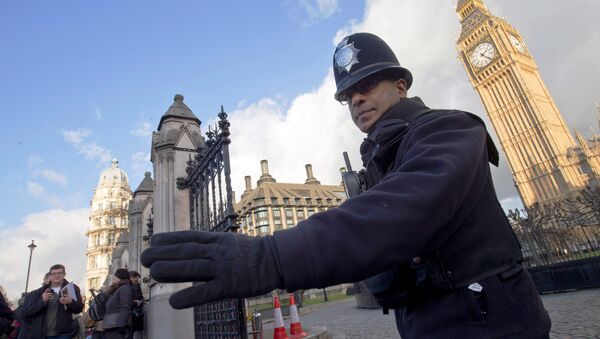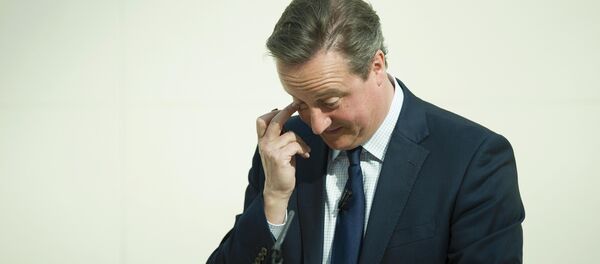LONDON (Sputnik) – Earlier in the day the UK Ministry of Justice announced plans to extend the Bribery Act into economic crimes, including fraud and money laundering this summer.
The announcement follows Prime Minister David Cameron introducing legal and investigative measures to fight tax evasion in the wake of the so-called Panama Papers leak last month.
Cameron, who hosted the Anti-Corruption Summit in London earlier on Thursday, unveiled two initiatives against money laundering in the United Kingdom.
On the one hand, foreign companies that have or will acquire property in the country would be forced to reveal their real owners. The beneficiary must be identified in a register before concluding the purchase of a property or land in England and Wales.
"The proposals announced by David Cameron today, following a series of targeted tax measures aimed squarely at foreign ownership, will serve as further discouragement for foreign individuals to purchase UK properties via corporate structures," Matthew Braithwaite, Senior Associate in the Private Wealth Department at London-based Bircham Dyson Bell, told Sputnik Thursday.
Braithwaite believes it wrong and counterproductive to assume that using a foreign company to acquire property predicates tax evasion.
"Assuming a foreign company must be being used for fraud or money laundering ignores the legitimate reasons why companies are used to own UK property – despite the Government acknowledging that the majority of foreign companies owning UK properties are for legitimate reasons. For many international property owners, this type of ownership affords protection against the less than legitimate regimes of the countries from which they originate," the expert said.
Cameron’s second initiative at the Anti-Corruption Summit was aimed at senior executives who fail to impose an anti-corruption culture among employees.
"This is an opportunistic start to today’s summit by David Cameron but clearly represents a step in the right direction in tackling the UK’s unenviable and growing reputation as a soft touch for laundering dirty money," John Milner, Head of Business Crime and Fraud at leading UK-based law firm IBB Solicitors, told Sputnik.
Milner posited that corporate figures would "shake the dust off" the 2010 Bribery Act adequate procedures policies to "adapt" them toward new corporate money-laundering offenses.



